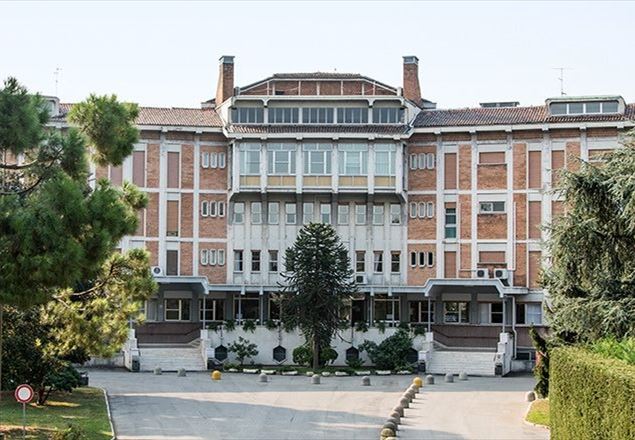
The Eduscopio ranking of the Agnelli Foundation establishes a ranking every year among the high schools of the main Italian citiesfollowing as parameters the results of the students in the university path for high schools, and the job opportunities for technicians and professionals. A tool much consulted by the families of eighth grade students who have to choose high school in this period. In the Eduscopio ranking for the city of Milan for some years now, a private school, Sacro Cuore, has appeared at the top of the list of high schools, also this year first among the classical high schools and among the artistic high schools, and third among scientific high schools. A constant success over time for which we wanted to discover the reasons by talking to the rector of the Sacred Heart, the Spanish priest Don José Clavería, which belongs to the priestly fraternity of the missionaries of San Carlo Borromeo. The school is located in the Lambrate area of Milan, and was commissioned in 1985 by Don Giussani, and represents the only school directly managed by communion and liberation.
«I also wondered what the secret of this success could be. First of all, ours is not an elitist school, for the rich, so to speak. Our tuition is not high, and if any family has financial difficulties we try to accommodate them, no one has ever left school because they could no longer afford it. We certainly have a precise orientation, a spirit that animates us. And this is what I also noticed for the other schools: at the top of Eduscopio there are schools that have a clearly distinguishable line, their own philosophy.”
The Sacred Heart has an educational offer that from nursery school to high school, some do the entire course, but there is also a considerable intake of new students as we progress through the different school levels. There are five classes of classics and ten of scientific, and ten of artistic. There are many requests, but spaces are limited and not all of them can be accommodated.
«Ours is a proposal with a Catholic imprint, but it is not just for believers. Anyone can sign up, the important thing is that they share our line, that is the idea that there must be a profound meaning, we want to affirm through every matter that the world has a meaning. This can be our first secret. The other is that we are a school that cares about every single boy, who we want to educate to think, and this is a skill that will be very useful when he goes to university.
Sometimes peer-reviewed schools are accused of being diploma mills, where promotion is assured for the sole reason that a fee is paid. «With us, failures are not frequent, but only because we make the kids love studyingand consequently to obtain good results. If, despite our efforts, there are kids who fall behind, then we stop them. But we are inspired by a phrase from Saint Francis de Sales: “A drop of honey moves children more than a barrel of vinegar”.
A school like this places great attention in the choice of teachers, selected after an in-depth interview, in which an attempt is made to evaluate both the preparation of the candidates and their passion for the educational dimension. «Many of our professors come from the world of university research. We have a fair amount of turnover, because after a few years some teachers move on to state schools but also a hard core of loyalists who play a guiding role for the younger teachers. The teaching staff collaborates, colleagues compare notes with each other, interdisciplinary paths are created. I myself am amazed when I attend a class council because the teachers know every single student, it is an attention that moves me.” The curriculum proposal is very traditional, the subjects are those of the school system, there are only hours of improvement in Italian, English and mathematics in middle school. And the school remains open in the afternoon so that the children can meet to study together.
Being a private school, it has to deal with all the difficulties that this type of proposal has to face in Italy. «I have lived in Spain, Austria and England and when I came to Italy I was shocked by the discrimination of private schools. In almost all European countries, private sector teachers are paid by the state, and fees are considerably lower so that there is effective freedom of choice for families, regardless of their income.”







